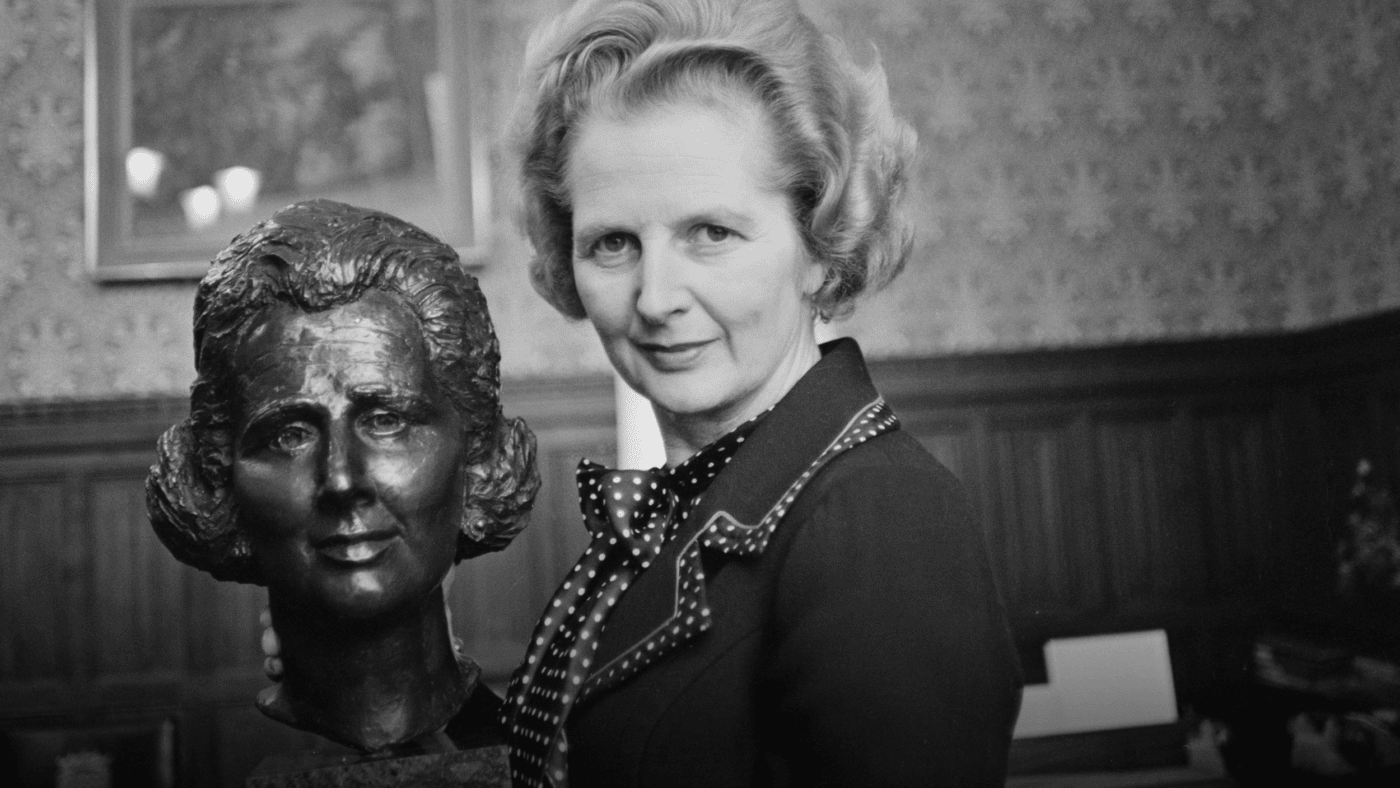It’s quite a thought that in order to have actually voted for Margaret Thatcher in the 1987 general election, you’d now need to be 56 years old. If you were born on the day after she left office in November 1990, you’ll turn 35 this year. My new biography of Thatcher is published this week – for historical comparison, imagine I was writing a biography in 1924, but on Benjamin Disraeli.
Over the three and a half decades since she left Number 10, it’s become the conventional wisdom to claim that most of the problems that bedevil our country are down to Thatcher. It’s the default, knee-jerk reaction of most left-wing commentators and academics. It’s utterly wrong and lazy thinking.
If you are like my personal trainer, Aaron Fowle, then you should read on. I had broken my hip and had gone to my local gym in Tunbridge Wells for some physiotherapy. Part of this was a weekly session with Aaron. He asked me what I did for a living, so I told him I presented a news and politics show on LBC radio each evening. Aaron then said: ‘So Margaret Thatcher… I’ve heard of her, but who was she? What did she do?’ Aaron was twenty-five at the time. He’s an intelligent guy, so I said I’d write this book for people like him who weren’t adults when Margaret Thatcher was Prime Minister. People like an Italian friend of mine, Alessio, who is a keen young historian, but also, like many of his generation, is quite prepared to believe many of the myths that have grown up surrounding Margaret Thatcher’s beliefs and motivations.
The longer a world statesman is dead, the greater their mythology becomes. As time goes on, fewer people who worked with them survive to correct the myths. Margaret Thatcher is both a victim and a beneficiary of this phenomenon. She was a woman of tremendous paradoxes.
Yes, she was in many ways a conviction politician. She had a basic set of core beliefs and morals, and rarely strayed from them. Once she determined a course of action, it was difficult to persuade her away from it. Yet she was also a pragmatist, someone who was willing to be persuaded by the force of argument. She delighted in her reputation as an ‘Iron Lady’: the epithet given to her by a Soviet newspaper in 1977. Yet she could also be emotional, and even tearful, when confronted by personal or national tragedy. She could be brutal in some of her dealings with her male ministerial colleagues, yet legion are the stories of her personal kindnesses to them and their families, as well as her Downing Street staff. She was known as a monetarist, classical laissez faire liberal, yet she started out as a social conservative, and certainly wasn’t averse to state intervention when she felt it was warranted.
She was just as much of an enigma in foreign policy, and there are equally as many misunderstandings about her motives. Many still believe she was a supporter of apartheid in South Africa, yet the facts offer a different version of history.
The myth also grew that the Falklands war and the so-called ‘Falklands Factor’ were the main reason she won the 1983 general election. The fact is that by April 1982 the economy was starting to turn round, and so were the polls.
The aim of my book is not to cover every aspect of Thatcher’s life and career. A legion of other biographers have done that, and none more so than Charles Moore in his magisterial and brilliantly-written three volume account of her life. The aim of my book is simple: to introduce Margaret Thatcher to a new generation – one that lives basking in the glory of her achievements, or formed in the shadow of her failures, depending on how one views the eleven and a half years of her rule – and also to bust the many myths that have grown up about her.
Disraeli is said to have created the modern Conservative Party, although I would give the Earl of Derby at least equal billing for the particular accolade. Disraeli’s reputation has been burnished over the 150 years since his death to an extent which defies the historical record. In Britain, Margaret Thatcher has suffered quite the reverse, although internationally she is still viewed as a colossus.
There is an element of truth in the belief that she still dominates British politics and the economic settlement. She regarded Tony Blair as her proudest achievement, and with good reason. He went down plenty of policy roads which would have caused a degree of queasiness in her later life, but Blair never questioned the basis of the Thatcher economic and industrial settlement. Nor has any government since. Nor do Keir Starmer and Rachel Reeves.
Tony Benn always divided politicians into weathervanes or signposts. Like Clement Attlee, Margaret Thatcher undoubtedly fell into the latter category. Opinion remains divided as to which of these postwar prime ministers is the greatest. Poll after poll of university lecturers and professors put Attlee in first place, but 85% of them self-identify as being on the Left. Attlee ushered in three decades of settled consensus between the parties on Keynesian economic policy, something which shattered under Thatcher. She in turn ushered in a period of thirty years of consensus on the limited role of the state, an industrial relations settlement and the dominance of the private sector in the economy. Only now, is this settlement being seriously questioned.
‘Margaret Thatcher’ by Iain Dale is published by Swift Press in hardback on 5 June at £16.99.
Click here to subscribe to our daily briefing – the best pieces from CapX and across the web.
CapX depends on the generosity of its readers. If you value what we do, please consider making a donation.


